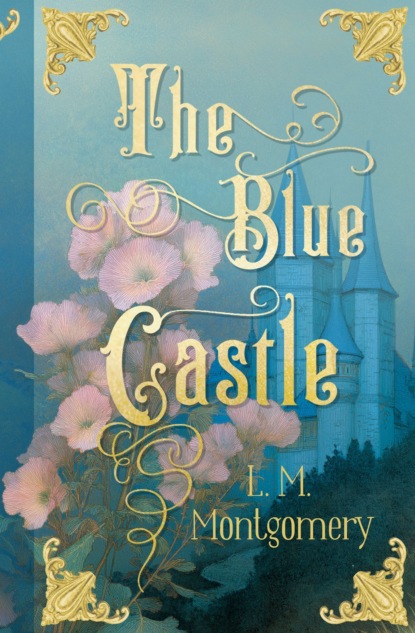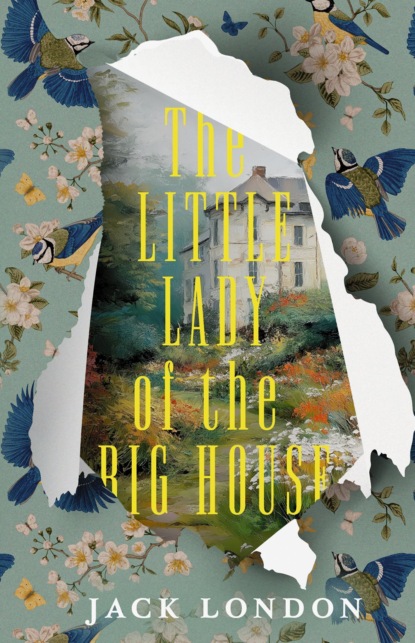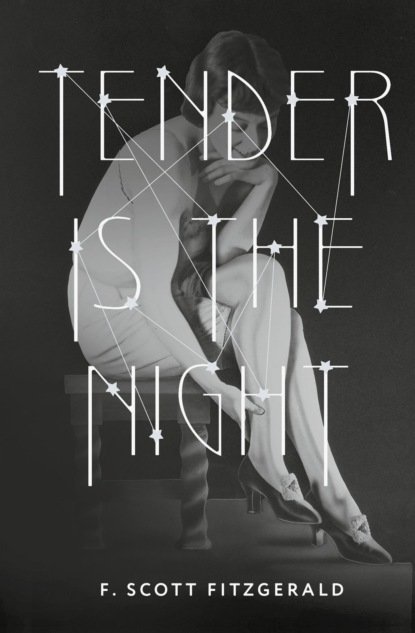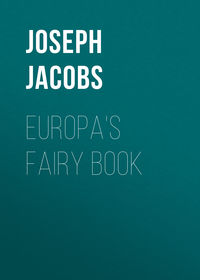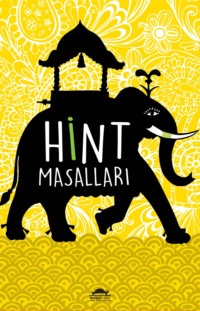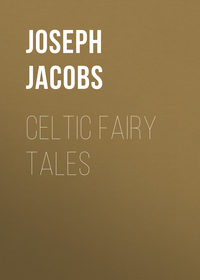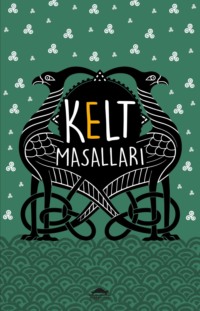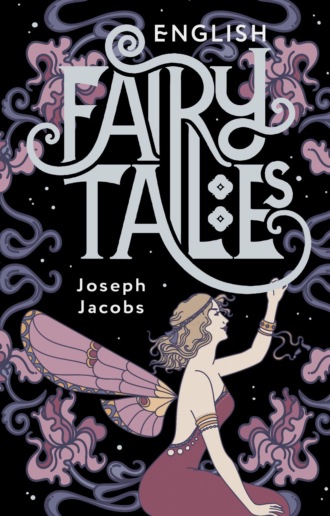
Полная версия
English Fairy Tales
The king and the queen heard this, and came to the bonny young lady, and she said:
“I cannot get Nix Nought Nothing to speak to me for all that I can do.”
Then were they greatly astonished when she spoke of Nix Nought Nothing, and asked where he was, and she said: “He that sits there in the chair.” Then they ran to him and kissed him and called him their own dear son; so they called for the gardener's daughter and made her sing her charm, and he wakened, and told them all that the giant's daughter had done for him, and of all her kindness. Then they took her in their arms and kissed her, and said she should now be their daughter, for their son should marry her. But they sent for the hen-wife and put her to death. And they lived happy all their days.
Jack Hannaford
There was an old soldier who had been long in the wars – so long, that he was quite out-at-elbows, and he did not know where to go to find a living. So he walked up moors, down glens, till at last he came to a farm, from which the good man had gone away to market. The wife of the farmer was a very foolish woman, who had been a widow when he married her; the farmer was foolish enough, too, and it is hard to say which of the two was the more foolish. When you've heard my tale you may decide.
Now before the farmer goes to market says he to his wife: “Here is ten pounds all in gold, take care of it till I come home.” If the man had not been a fool he would never have given the money to his wife to keep. Well, off he went in his cart to market, and the wife said to herself: “I will keep the ten pounds quite safe from thieves;” so she tied it up in a rag, and she put the rag up the parlour chimney.
“There,” said she, “no thieves will ever find it now, that is quite sure.”
Jack Hannaford, the old soldier, came and rapped at the door.
“Who is there?” asked the wife.
“Jack Hannaford.”
“Where do you come from?”
“ Paradise.”
“Lord a' mercy! and maybe you've seen my old man there,” alluding to her former husband.
“Yes, I have.”
“And how was he a-doing?” asked the goody.
“But middling; he cobbles old shoes, and he has nothing but cabbage for victuals.”
“Deary me!” exclaimed the woman. “Didn't he send a message to me?”
“Yes, he did,” replied Jack Hannaford. “He said that he was out of leather, and his pockets were empty, so you were to send him a few shillings to buy a fresh stock of leather.”
“He shall have them, bless his poor soul!” And away went the wife to the parlour chimney, and she pulled the rag with the ten pounds in it from the chimney, and she gave the whole sum to the soldier, telling him that her old man was to use as much as he wanted, and to send back the rest.
It was not long that Jack waited after receiving the money; he went off as fast as he could walk.
Presently the farmer came home and asked for his money. The wife told him that she had sent it by a soldier to her former husband in Paradise, to buy him leather for cobbling the shoes of the saints and angels of Heaven. The farmer was very angry, and he swore that he had never met with such a fool as his wife. But the wife said that her husband was a greater fool for letting her have the money.
There was no time to waste words; so the farmer mounted his horse and rode off after Jack Hannaford. The old soldier heard the horse's hoofs clattering on the road behind him, so he knew it must be the farmer pursuing him. He lay down on the ground, and shading his eyes with one hand, looked up into the sky, and pointed heavenwards with the other hand.
“What are you about there?” asked the farmer, pulling up.
“Lord save you!” exclaimed Jack: “I've seen a rare sight.”
“What was that?”
“A man going straight up into the sky, as if he were walking on a road.”
“Can you see him still?”
“Yes, I can.”
“Where?”
“Get off your horse and lie down.”
“If you will hold the horse.”
Jack did so readily.
“I cannot see him,” said the farmer.
“Shade your eyes with your hand, and you'll soon see a man flying away from you.”
Sure enough he did so, for Jack leaped on the horse, and rode away with it. The farmer walked home without his horse.
“You are a bigger fool than I am,” said the wife; “for I did only one foolish thing, and you have done two.”
Binnorie
Once upon a time there were two king's daughters lived in a bower near the bonny mill-dams of Binnorie. And Sir William came wooing the eldest and won her love and plighted troth with glove and with ring. But after a time he looked upon the youngest, with her cherry cheeks and golden hair, and his love grew towards her till he cared no longer for the eldest one. So she hated her sister for taking away Sir William's love, and day by day her hate grew upon her, and she plotted and she planned how to get rid of her.
So one fine morning, fair and clear, she said to her sister, “Let us go and see our father's boats come in at the bonny mill-stream of Binnorie.” So they went there hand in hand. And when they got to the river's bank the youngest got upon a stone to watch for the coming of the boats. And her sister, coming behind her, caught her round the waist and dashed her into the rushing mill-stream of Binnorie.
“O sister, sister, reach me your hand!” she cried, as she floated away, “and you shall have half of all I've got or shall get.”
“No, sister, I'll reach you no hand of mine, for I am the heir to all your land. Shame on me if I touch the hand that has come 'twixt me and my own heart's love.”
“O sister, O sister, then reach me your glove!” she cried, as she floated further away, “and you shall have your William again.”
“Sink on,” cried the cruel princess, “no hand or glove of mine you'll touch. Sweet William will be all mine when you are sunk beneath the bonny mill-stream of Binnorie.” And she turned and went home to the king's castle.
And the princess floated down the mill-stream, sometimes swimming and sometimes sinking, till she came near the mill. Now the miller's daughter was cooking that day, and needed water for her cooking. And as she went to draw it from the stream, she saw something floating towards the mill-dam, and she called out, “Father! father! draw your dam. There's something white – a merry maid or a milk-white swan – coming down the stream.” So the miller hastened to the dam and stopped the heavy cruel mill-wheels. And then they took out the princess and laid her on the bank.
Fair and beautiful she looked as she lay there. In her golden hair were pearls and precious stones; you could not see her waist for her golden girdle; and the golden fringe of her white dress came down over her lily feet. But she was drowned, drowned!
And as she lay there in her beauty a famous harper passed by the mill-dam of Binnorie, and saw her sweet pale face. And though he travelled on far away he never forgot that face, and after many days he came back to the bonny mill-stream of Binnorie. But then all he could find of her where they had put her to rest were her bones and her golden hair. So he made a harp out of her breast-bone and her hair, and travelled on up the hill from the mill-dam of Binnorie, till he came to the castle of the king her father.
That night they were all gathered in the castle hall to hear the great harper – king and queen, their daughter and son, Sir William and all their Court. And first the harper sang to his old harp, making them joy and be glad or sorrow and weep just as he liked. But while he sang he put the harp he had made that day on a stone in the hall. And presently it began to sing by itself, low and clear, and the harper stopped and all were hushed.
And this was what the harp sung:
“O yonder sits my father, the king,Binnorie, O Binnorie;And yonder sits my mother, the queen;By the bonny mill-dams o' Binnorie,“And yonder stands my brother Hugh,Binnorie, O Binnorie;And by him, my William, false and true;By the bonny mill-dams o' Binnorie.”Then they all wondered, and the harper told them how he had seen the princess lying drowned on the bank near the bonny mill-dams o' Binnorie, and how he had afterwards made this harp out of her hair and breast-bone. Just then the harp began singing again, and this was what it sang out loud and clear:
“And there sits my sister who drownèd meBy the bonny mill-dams o' Binnorie.”And the harp snapped and broke, and never sang more.
Mouse and Mouser
The Mouse went to visit the Cat, and found her sitting behind the hall door, spinning.
MOUSE. What are you doing, my lady, my lady, What are you doing, my lady?
CAT (sharply). I'm spinning old breeches, good body, good body I'm spinning old breeches, good body.
MOUSE. Long may you wear them, my lady, my lady, Long may you wear them, my lady.
CAT (gruffly). I'll wear' em and tear 'em, good body, good body. I'll wear 'em and tear 'em, good body.
MOUSE. I was sweeping my room, my lady, my lady, I was sweeping my room, my lady.
CAT. The cleaner you'd be, good body, good body, The cleaner you'd be, good body.
MOUSE. I found a silver sixpence, my lady, my lady, I found a silver sixpence, my lady.
CAT. The richer you were, good body, good body, The richer you were, good body.
MOUSE. I went to the market, my lady, my lady, I went to the market, my lady.
CAT. The further you went, good body, good body The further you went, good body.
MOUSE. I bought me a pudding, my lady, my lady, I bought me a pudding, my lady.
CAT (snarling). The more meat you had, good body, good body, The more meat you had, good body.
MOUSE. I put it in the window to cool, my lady, I put it in the window to cool.
CAT. (sharply). The faster you'd eat it, good body, good body, The faster you'd eat it, good body.
MOUSE (timidly). The cat came and ate it, my lady, my lady, The cat came and ate it, my lady.
CAT (pouncingly). And I'll eat you, good body, good body, And I'll eat you, good body.
(Springs upon the mouse and kills it.)
Cap O' Rushes
Well, there was once a very rich gentleman, and he'd three daughters, and he thought he'd see how fond they were of him. So he says to the first, “How much do you love me, my dear?”
“Why,” says she, “as I love my life.”
“That's good,” says he.
So he says to the second, “How much do you love me, my dear?”
“Why,” says she, “better nor all the world.”
“That's good,” says he.
So he says to the third, “How much do you love me, my dear?”
“Why, I love you as fresh meat loves salt,” says she.
Well, he was that angry. “You don't love me at all,” says he, “and in my house you stay no more.” So he drove her out there and then, and shut the door in her face.
Well, she went away on and on till she came to a fen, and there she gathered a lot of rushes and made them into a kind of a sort of a cloak with a hood, to cover her from head to foot, and to hide her fine clothes. And then she went on and on till she came to a great house.
“Do you want a maid?” says she.
“No, we don't,” said they.
“I haven't nowhere to go,” says she; “and I ask no wages, and do any sort of work,” says she.
“Well,” says they, “if you like to wash the pots and scrape the saucepans you may stay,” said they.
So she stayed there and washed the pots and scraped the saucepans and did all the dirty work. And because she gave no name they called her “Cap o' Rushes.”
Well, one day there was to be a great dance a little way off, and the servants were allowed to go and look on at the grand people. Cap o' Rushes said she was too tired to go, so she stayed at home.
But when they were gone she offed with her cap o' rushes, and cleaned herself, and went to the dance. And no one there was so finely dressed as her.
Well, who should be there but her master's son, and what should he do but fall in love with her the minute he set eyes on her. He wouldn't dance with any one else.
But before the dance was done Cap o' Rushes slipt off, and away she went home. And when the other maids came back she was pretending to be asleep with her cap o' rushes on.
Well, next morning they said to her, “You did miss a sight, Cap o' Rushes!”
“What was that?” says she.
“Why, the beautifullest lady you ever see, dressed right gay and ga'. The young master, he never took his eyes off her.”
“Well, I should have liked to have seen her,” says Cap o' Rushes.
“Well, there's to be another dance this evening, and perhaps she'll be there.”
But, come the evening, Cap o' Rushes said she was too tired to go with them. Howsoever, when they were gone, she offed with her cap o' rushes and cleaned herself, and away she went to the dance.
The master's son had been reckoning on seeing her, and he danced with no one else, and never took his eyes off her. But, before the dance was over, she slipt off, and home she went, and when the maids came back she, pretended to be asleep with her cap o' rushes on.
Next day they said to her again, “Well, Cap o' Rushes, you should ha' been there to see the lady. There she was again, gay and ga', and the young master he never took his eyes off her.”
“Well, there,” says she, “I should ha' liked to ha' seen her.”
“Well,” says they, “there's a dance again this evening, and you must go with us, for she's sure to be there.”
Well, come this evening, Cap o' Rushes said she was too tired to go, and do what they would she stayed at home. But when they were gone she offed with her cap o' rushes and cleaned herself, and away she went to the dance.
The master's son was rarely glad when he saw her. He danced with none but her and never took his eyes off her. When she wouldn't tell him her name, nor where she came from, he gave her a ring and told her if he didn't see her again he should die.
Well, before the dance was over, off she slipped, and home she went, and when the maids came home she was pretending to be asleep with her cap o' rushes on.
Well, next day they says to her, “There, Cap o' Rushes, you didn't come last night, and now you won't see the lady, for there's no more dances.”
“Well I should have rarely liked to have seen her,” says she.
The master's son he tried every way to find out where the lady was gone, but go where he might, and ask whom he might, he never heard anything about her. And he got worse and worse for the love of her till he had to keep his bed.
“Make some gruel for the young master,” they said to the cook. “He's dying for the love of the lady.” The cook she set about making it when Cap o' Rushes came in.
“What are you a-doing of?”, says she.
“I'm going to make some gruel for the young master,” says the cook, “for he's dying for love of the lady.”
“Let me make it,” says Cap o' Rushes.
Well, the cook wouldn't at first, but at last she said yes, and Cap o' Rushes made the gruel. And when she had made it she slipped the ring into it on the sly before the cook took it upstairs.
The young man he drank it and then he saw the ring at the bottom.
“Send for the cook,” says he.
So up she comes.
“Who made this gruel here?” says he.
“I did,” says the cook, for she was frightened.
And he looked at her,
“No, you didn't,” says he. “Say who did it, and you shan't be harmed.”
“Well, then, 'twas Cap o' Rushes,” says she.
“Send Cap o' Rushes here,” says he.
So Cap o' Rushes came.
“Did you make my gruel?” says he.
“Yes, I did,” says she.
“Where did you get this ring?” says he.
“From him that gave it me,” says she.
“Who are you, then?” says the young man.
“I'll show you,” says she. And she offed with her cap o' rushes, and there she was in her beautiful clothes.
Well, the master's son he got well very soon, and they were to be married in a little time. It was to be a very grand wedding, and every one was asked far and near. And Cap o' Rushes' father was asked. But she never told anybody who she was.
But before the wedding she went to the cook, and says she:
“I want you to dress every dish without a mite o' salt.”
“That'll be rare nasty,” says the cook.
“That doesn't signify,” says she.
“Very well,” says the cook.
Well, the wedding-day came, and they were married. And after they were married all the company sat down to the dinner. When they began to eat the meat, that was so tasteless they couldn't eat it. But Cap o' Rushes' father he tried first one dish and then another, and then he burst out crying.
“What is the matter?” said the master's son to him.
“Oh!” says he, “I had a daughter. And I asked her how much she loved me. And she said 'As much as fresh meat loves salt.' And I turned her from my door, for I thought she didn't love me. And now I see she loved me best of all. And she may be dead for aught I know.”
Конец ознакомительного фрагмента.
Текст предоставлен ООО «Литрес».
Прочитайте эту книгу целиком, купив полную легальную версию на Литрес.
Безопасно оплатить книгу можно банковской картой Visa, MasterCard, Maestro, со счета мобильного телефона, с платежного терминала, в салоне МТС или Связной, через PayPal, WebMoney, Яндекс.Деньги, QIWI Кошелек, бонусными картами или другим удобным Вам способом.


